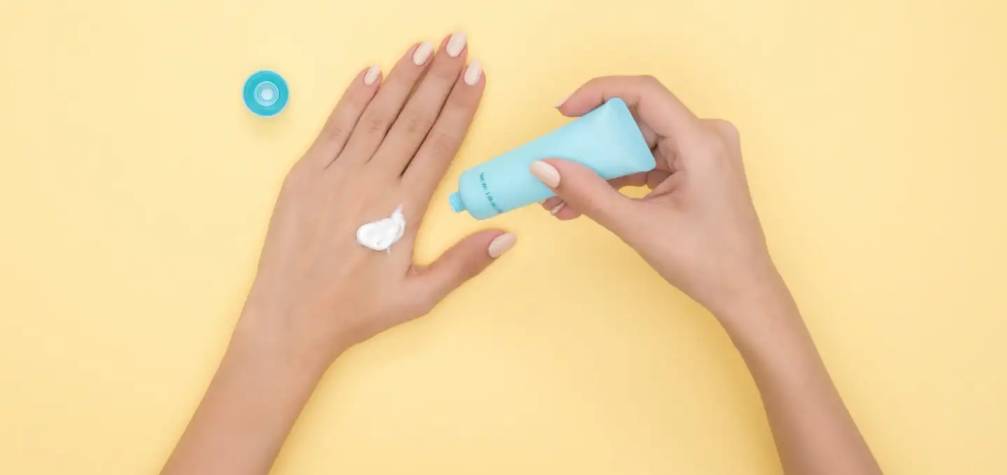Things to Know Before Using Hydroxy Acids on Your Skin
5 min read
08 Jun 2025
Hydroxy acids, also known as exfoliating acids, have gained popularity in skincare for their ability to improve skin texture, promote cell turnover, and address various skin concerns. However, before incorporating hydroxy acids into your skincare routine, it's crucial to understand their types, benefits, potential side effects, and how to use them safely and effectively. In this guide, we will explore everything you need to know before using hydroxy acids on your skin.
Types of Hydroxy Acids
There are two primary types of hydroxy acids used in skincare: alpha hydroxy acids (AHAs) and beta hydroxy acids (BHAs).

Alpha Hydroxy Acids (AHAs)
AHAs are water-soluble acids derived from fruits, milk, and sugar. Common AHAs used in skincare include glycolic acid (from sugar cane), lactic acid (from milk), malic acid (from apples), tartaric acid (from grapes), and citric acid (from citrus fruits). AHAs are known for their exfoliating properties, helping to remove dead skin cells and improve skin tone and texture. They are suitable for addressing issues like uneven pigmentation, fine lines, and dullness.
Beta Hydroxy Acids (BHAs)
Salicylic acid is the primary BHA used in skincare. It is oil-soluble, which allows it to penetrate deep into the pores. BHAs are particularly effective for treating acne and controlling excess oil production. They can help unclog pores, reduce inflammation, and prevent breakouts.
Benefits of Hydroxy Acids
Using hydroxy acids in your skincare routine offers several benefits:
Exfoliation: Hydroxy acids exfoliate the skin by dissolving the bonds between dead skin cells. This process promotes the shedding of these cells, revealing smoother, fresher skin underneath.
Improved Skin Texture: Regular use of hydroxy acids can help refine skin texture, reducing the appearance of roughness, fine lines, and surface imperfections.
Even Skin Tone: AHAs are effective at fading dark spots and hyperpigmentation, resulting in a more even complexion.
Acne Management: BHAs, like salicylic acid, are excellent for managing acne by unclogging pores, reducing inflammation, and preventing future breakouts.
Increased Absorption: Hydroxy acids can enhance the penetration of other skincare products, allowing serums and treatments to be more effective.
Potential Side Effects
While hydroxy acids can be highly beneficial for the skin, they can also cause side effects, especially if not used correctly. Some common side effects include:
Irritation: Overuse or improper application of hydroxy acids can lead to skin irritation, redness, burning, or stinging. It's essential to start with lower concentrations and gradually increase as your skin builds tolerance.
Sun Sensitivity: Hydroxy acids can make your skin more sensitive to the sun. It's crucial to use broad-spectrum sunscreen daily when incorporating these acids into your routine to protect your skin from UV damage.
Dryness and Peeling: Excessive use of hydroxy acids can lead to dryness and peeling. Be mindful of the frequency and concentration of the product you use.
Allergic Reactions: While uncommon, some individuals may be sensitive or allergic to specific hydroxy acids. Always perform a patch test before using a new product on your face.
Using Hydroxy Acids Safely and Effectively
To make the most of hydroxy acids while minimizing potential side effects, follow these guidelines:
Start Slowly: If you're new to hydroxy acids, begin with lower concentrations and use them less frequently to allow your skin to acclimate. As your tolerance builds, you can gradually increase both concentration and frequency.
Patch Test: Always perform a patch test before using a new product. Apply a small amount to a discreet area of skin (like the forearm) and wait 24-48 hours to check for any adverse reactions.
Follow Directions: Read and follow the instructions provided by the product manufacturer. Pay attention to recommended usage frequency and duration.
Use Sunscreen: Incorporating sunscreen into your daily skincare routine is non-negotiable when using hydroxy acids. UV protection is essential to prevent sun damage and counteract increased sun sensitivity.
Moisturize: Hydroxy acids can be drying. Use a hydrating moisturizer to maintain skin hydration and minimize dryness and peeling.
Avoid Overlapping Products: Be cautious when using multiple skincare products containing hydroxy acids or other exfoliants. Over-exfoliation can lead to irritation.
Consult a Professional: If you have specific skin concerns or conditions, consider consulting a dermatologist or skincare professional before using hydroxy acids. They can provide tailored recommendations and guidance.
Conclusion
Hydroxy acids offer significant benefits for skin texture, tone, and acne management when used correctly and responsibly. Understanding the types of hydroxy acids, their benefits, potential side effects, and safe usage guidelines is crucial for incorporating them into your skincare routine effectively. With patience and proper care, you can enjoy the transformative effects of hydroxy acids and achieve healthier, more radiant skin.
More Articles

Bradley Cooper 'Jewface' Controversy: Navigating Boundaries of Artistic Expression, Cultural Sensitivity, and Historical Implications
4 min read | 28 Oct 2025

Jennifer Lopez Radiates Glamour in August Album Photos, Reaffirming Her Iconic Style
3 min read | 27 Oct 2025

Angelina Jolie's New Finger Tattoo: Exploring the Enigmatic Link to Brad Pitt and the Eternal Fascination with Celebrity Relationships
3 min read | 26 Oct 2025